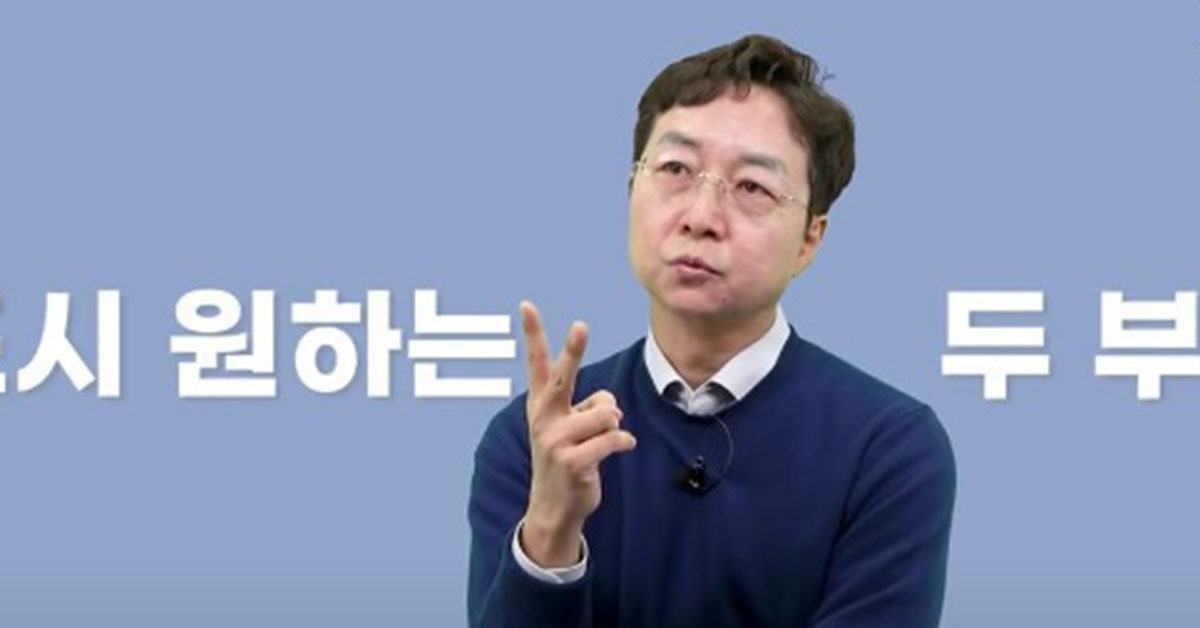
Hyun-Joon Yoo, Professor of Hongik University. Photo YouTube channel’Zipkonomy TV’ capture
Professor Yoo Hyun-jun of Hongik University, an urban expert who became a hot topic for his remarks in anticipation of the Korea Land and Housing Corporation (LH) situation, said, “It is not only good that the name is always public.” Prof. Yoo, who appeared on Channel A News on the 6th, said, “The core of public development is ultimately human beings.”
Earlier, on the 6th of last month, Prof. Yoo said on the YouTube broadcast’Zipkonomi TV’, “there are two types of people who like to make a new town.” His remarks came from the process of criticizing the current government’s real estate policy, but after a suspicion of speculation of land in a new city by LH employees arose recently, he was noted as a so-called’holy land remark’ (a remark that predicted this before an incident occurred).
Prof. Yoo said on the day, “Once, because local congressmen can provide land compensation, they will receive a lot of support, increasing the likelihood of re-election.” “There is,” he explained the purpose of the remarks at the time.
“But in fact, the core of this problem doesn’t seem to be there.” I pointed out.
“People usually try to catch villains, but there are not only villains, but there are also hypocrites,” he added. “The way to distinguish between villains and hypocrites, it is important to have a sharp eye to see these things.”
Regarding the new city policy, “In fact, 91% of our country is already in a state of urbanization, so there is no further movement to the city,” he said. “In this state, it is better to use the existing urban infrastructure to increase the density. It is a desirable direction.”
Professor Yoo said, “It is not necessary to do the work of creating another residential site until now, while damaging the nature. Such work was necessary when a large number of people moved from rural to urban in the 1970s, but now it is not necessary. “Rather, it is necessary to actively develop existing lands,” he argued.
Reporter Eunbin Kim [email protected]
![]()
